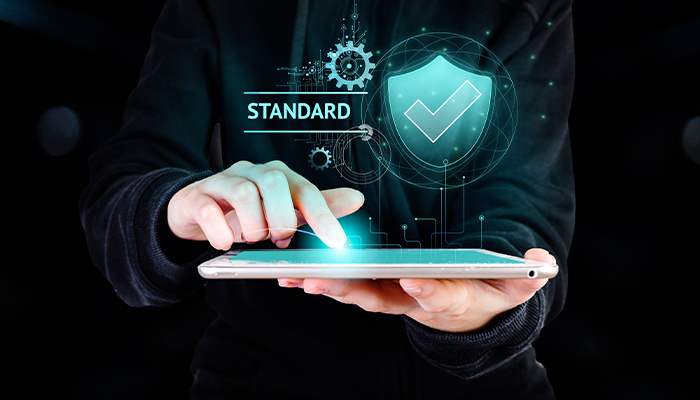How Do You Develop GDPR-Compliant Software for Your Business?

MAR, 29, 2024 14:30 PM
How Do You Develop GDPR-Compliant Software for Your Business?
In an era where data privacy is paramount, businesses must prioritise the development of GDPR-compliant software to safeguard sensitive information and adhere to regulatory requirements. How to Develop GDPR-Compliant Software for Your Business The General Data Protection Regulation (GDPR) is a comprehensive data protection law that applies to companies operating within the European Union (EU) or handling EU citizen data. Crafting software that complies with GDPR not only protects your customers' data but also ensures your business avoids hefty fines and maintains a trustworthy reputation.
Key Components of GDPR-Compliant Software:
Data Mapping and Classification:
To build GDPR-compliant software for businesses, initiate the process by conducting a meticulous inventory of the data your software processes. Identify and classify personal data, understanding the intricacies of information falling under the GDPR's scope. This comprehensive mapping exercise forms the bedrock for implementing robust security measures, ensuring that your software handles sensitive information with the utmost care and precision.
User Consent Management:
Obtaining explicit and informed consent from users is pivotal to GDPR compliance. Your software should feature clear, accessible consent mechanisms, providing users with a transparent understanding of how their data will be used. Additionally, incorporate user-friendly options that allow individuals to easily withdraw their consent at any time. This proactive approach not only respects user privacy but also aligns with GDPR's emphasis on user control over personal information.
Data Minimization and Purpose Limitation:
GDPR encourages the principle of data minimization: collect only what is strictly necessary for the intended purpose. Define and document specific purposes for data usage, steering clear of excessive processing. By adhering to purpose limitations, your software ensures that it not only complies with GDPR but also aligns with privacy best practices, fostering a responsible and trustworthy digital ecosystem.
Security by Design and Default
Implementing security measures at the core of your software development process is non-negotiable. Integrate robust features like encryption, access controls, and pseudonymization from the outset. This approach ensures that data is protected against unauthorized access throughout the software's lifecycle. By making security an integral part of the development process, your software inherently aligns with GDPR's requirement for privacy-centric design.
Transparent Data Processing:
Transparency is key to gaining user trust. Keep users well-informed about how their data is processed within your software. Provide clear and concise privacy policies, terms of service, and data processing notices. Transparent communication not only fosters user trust but also demonstrates your commitment to GDPR compliance, contributing to a positive user experience.
Data Subject Rights:
Your software should empower users to exercise their rights under GDPR. Implement features that allow users to easily access, rectify, or erase their personal data. Facilitate seamless data portability, enabling users to transfer their information to other services. By prioritising data subject rights, your software aligns with the GDPR's core objective of putting individuals in control of their personal information.
Data Breach Response Plan:
Developing a comprehensive plan to respond to potential data breaches is critical for GDPR compliance. Equip your software with features that swiftly detect, report, and mitigate security incidents. Ensure compliance with GDPR's requirement to notify relevant authorities and affected individuals within 72 hours of discovering a breach. A robust response plan not only minimises the impact of breaches but also showcases your commitment to data security and regulatory adherence.
Regular audits and assessments:
Continuous improvement is essential in the realm of GDPR compliance. Conduct regular privacy impact assessments and audits to evaluate and enhance your software's effectiveness. This proactive approach identifies and rectifies potential issues before they escalate, demonstrating a commitment to ongoing compliance and the safeguarding of user data. Regular assessments also position your software to adapt seamlessly to evolving privacy regulations and standards.
Choosing the Right Software Development Company:

When embarking on the journey of developing GDPR-compliant software, the selection of the best software development company becomes a pivotal decision. Consider the following attributes to ensure you partner with a reputable and capable firm that can successfully navigate the complexities of data protection and privacy regulations:
GDPR Expertise:
Opt for a company with a proven track record of developing GDPR-compliant solutions. Assess their experience in dealing with the intricacies of the regulation as well as their ability to adapt to its evolving landscape. A development partner with a deep understanding of GDPR nuances can significantly contribute to the success of your project by ensuring that your software is not only compliant but also future-proofed against regulatory changes.
Security Protocols:
A critical aspect of GDPR compliance is the robust protection of user data. Assess the development company's commitment to security by delving into their security protocols. Inquire about their coding practices, encryption standards, and past experiences in implementing effective data protection features. A development partner with a strong emphasis on security ensures that your software is built with the highest standards of data protection, safeguarding user privacy from potential threats.
Compliance Documentation:
Request comprehensive documentation that validates the company's commitment to compliance. This should include GDPR-compliance policies, procedures, and evidence of successful implementations in the past. Thorough documentation not only showcases the company's dedication to adhering to regulatory standards but also provides you with the assurance that your software development project will be handled with the utmost professionalism and compliance.
User-Centric Approach:
Prioritise a development company that places a strong emphasis on a user-centric design approach. A focus on user experience ensures that privacy features are seamlessly integrated into the software, enhancing overall usability. The software should not only meet regulatory requirements but also provide an intuitive and positive experience for end-users. A user-centric approach not only fosters user trust but also aligns with the principles of transparency and control advocated by GDPR.
References and Reviews:
Research the reputation of the development company by checking client references and online reviews. Positive feedback from previous clients is a strong indicator of the company's reliability and expertise in delivering GDPR-compliant solutions. Additionally, reach out to businesses in similar industries that have utilised the services of the development company to gain insights into their experience. A stellar reputation and positive client testimonials serve as valuable endorsements, providing you with confidence in your choice of a development partner.
How to Choose the Right Company for GDPR-compliant Software
GDPR compliance is essential for any organisation handling personal data, and choosing a competent development partner ensures the creation of software that not only meets regulatory standards but also aligns with your business objectives. Here is a comprehensive guide on how to make the right choice:
Expertise in GDPR Compliance:
When choosing a software development company, prioritise those with a proven track record of developing GDPR-compliant solutions. Assess their understanding of the regulation's intricacies, as GDPR compliance goes beyond basic data protection measures. A company with expertise in GDPR will be well-versed in the nuances of the law, ensuring your software is not only compliant but also capable of adapting to any future regulatory changes.
Security Protocols:
Evaluate the development company's commitment to data security. Inquire about their security protocols, coding practices, and previous experience in implementing robust data protection features. A reliable partner should employ encryption standards, access controls, and other security measures to safeguard user data. This is crucial for not only compliance but also for building trust with your users.
Compliance Documentation:
Request comprehensive documentation that demonstrates the company's commitment to GDPR compliance. This documentation may include GDPR-compliance policies, procedures, and evidence of successful implementations in the past. Thorough documentation ensures transparency and provides assurance that your software development project will adhere to regulatory standards, reducing the risk of legal complications.
User-Centric Approach:
Opt for a development company that prioritises a user-centric design approach. GDPR compliance is not just about meeting legal requirements; it's about respecting user privacy and enhancing their experience. A user-centric approach ensures that privacy features are seamlessly integrated into the software, making it user-friendly and aligning with the principles of transparency and control advocated by GDPR.
References and Reviews:
Research the development company's reputation by checking client references and online reviews. Positive feedback from previous clients is a strong indicator of the company's reliability and expertise. Reach out to businesses in similar industries that have used the services of the development company to gain insights into their experience. A company with positive references and testimonials is more likely to deliver on their promises.
Flexibility and Scalability
Choose a development partner capable of creating software that is not only GDPR-compliant but also flexible and scalable. Your business needs may evolve, and the software should be able to accommodate these changes while maintaining compliance. A development company that understands the need for scalability ensures that your software remains effective in the long run.
Ongoing Support and Maintenance:
GDPR compliance is an ongoing process, and your software needs to be continuously updated to address new challenges and regulations. Ensure that the development company provides adequate support and maintenance services. This includes timely updates, patches, and a commitment to addressing any emerging compliance issues promptly.
Conclusion
Developing GDPR-compliant software is not just a legal requirement but a strategic move to gain and maintain the trust of your customers. By adhering to the key components outlined in this guide and choosing a reliable software development company, you can ensure that your software not only meets regulatory standards but also sets a benchmark for data protection in the digital landscape. Embrace GDPR compliance as an opportunity to build a secure and reputable software solution that places user privacy at its core.
PERFECTION GEEKS
PerfectionGeeks is a one-stop resource for everything related to…
RELATED BLOG
What is the Cost of Custom App Development for a SaaS-based Business?



